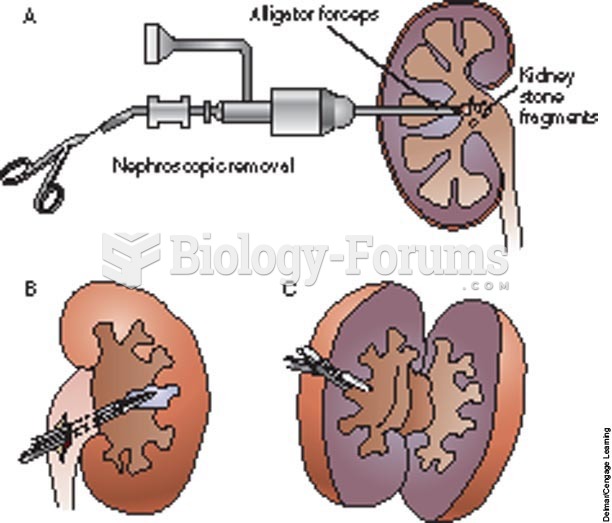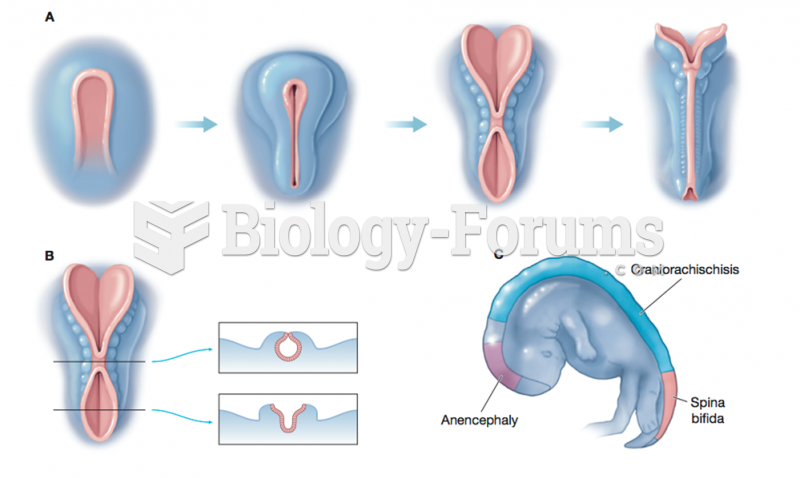|
|
|
Certain rare plants containing cyanide include apricot pits and a type of potato called cassava. Fortunately, only chronic or massive ingestion of any of these plants can lead to serious poisoning.
When Gabriel Fahrenheit invented the first mercury thermometer, he called "zero degrees" the lowest temperature he was able to attain with a mixture of ice and salt. For the upper point of his scale, he used 96°, which he measured as normal human body temperature (we know it to be 98.6° today because of more accurate thermometers).
Most childhood vaccines are 90–99% effective in preventing disease. Side effects are rarely serious.
Egg cells are about the size of a grain of sand. They are formed inside of a female's ovaries before she is even born.
More than 150,000 Americans killed by cardiovascular disease are younger than the age of 65 years.







